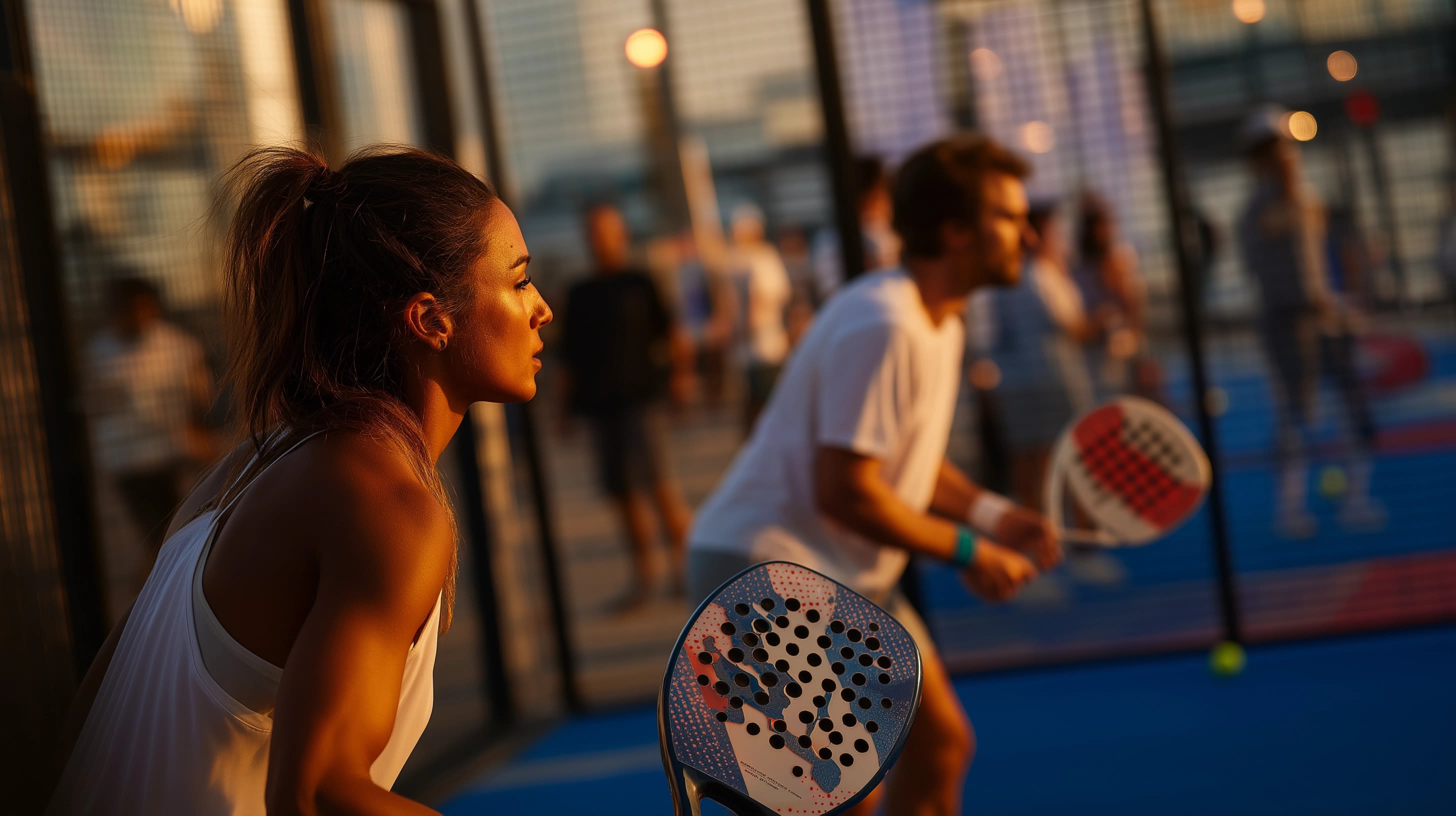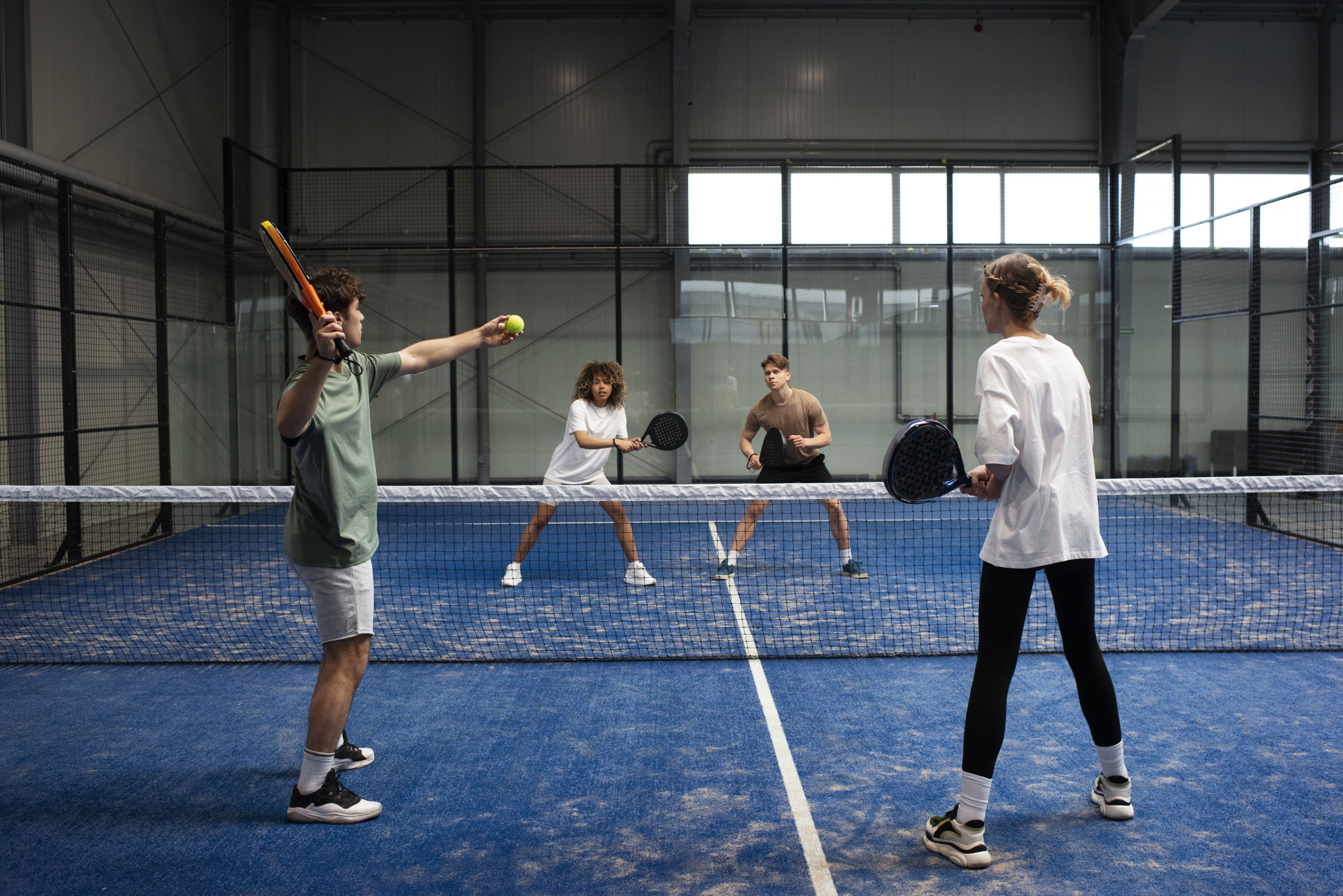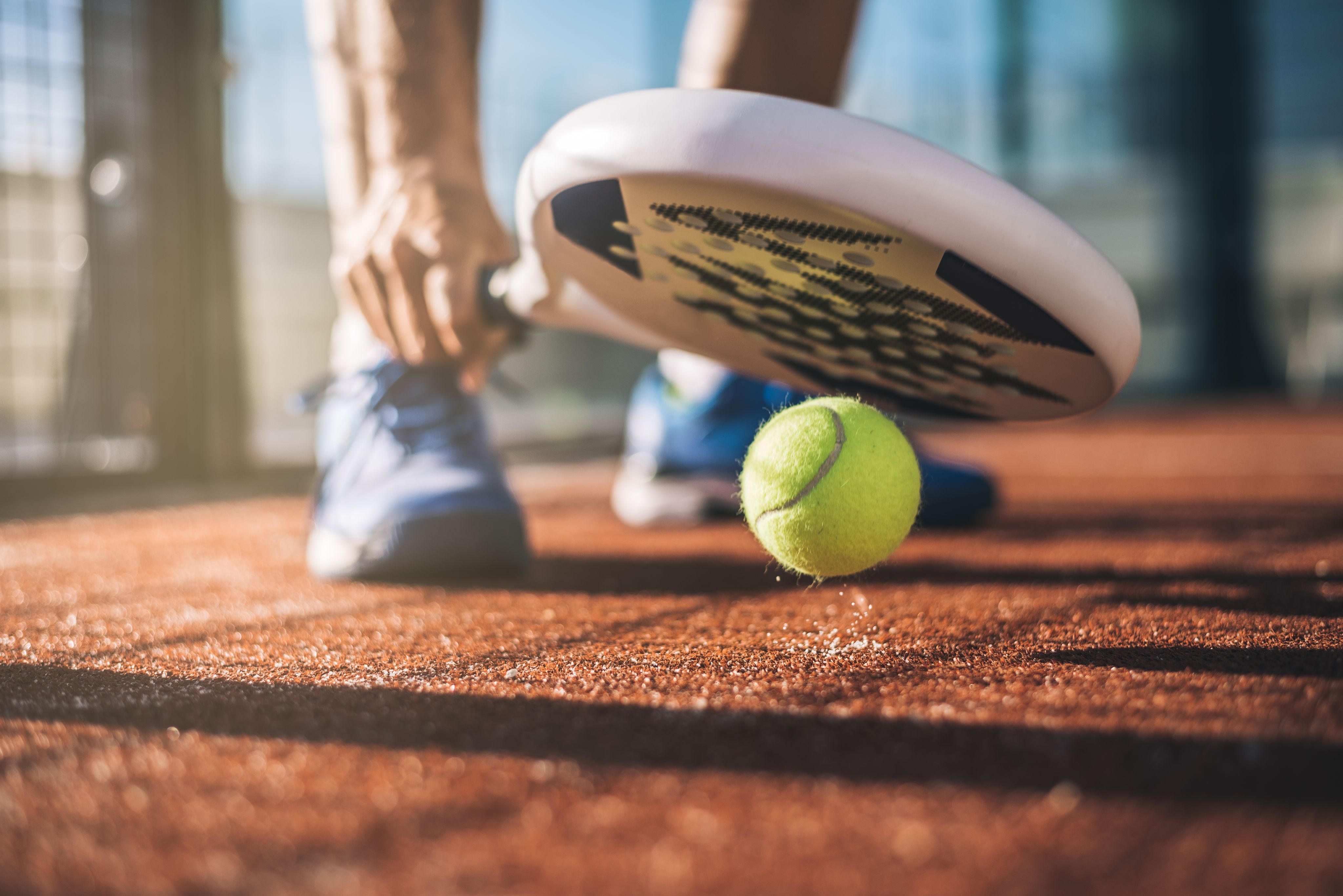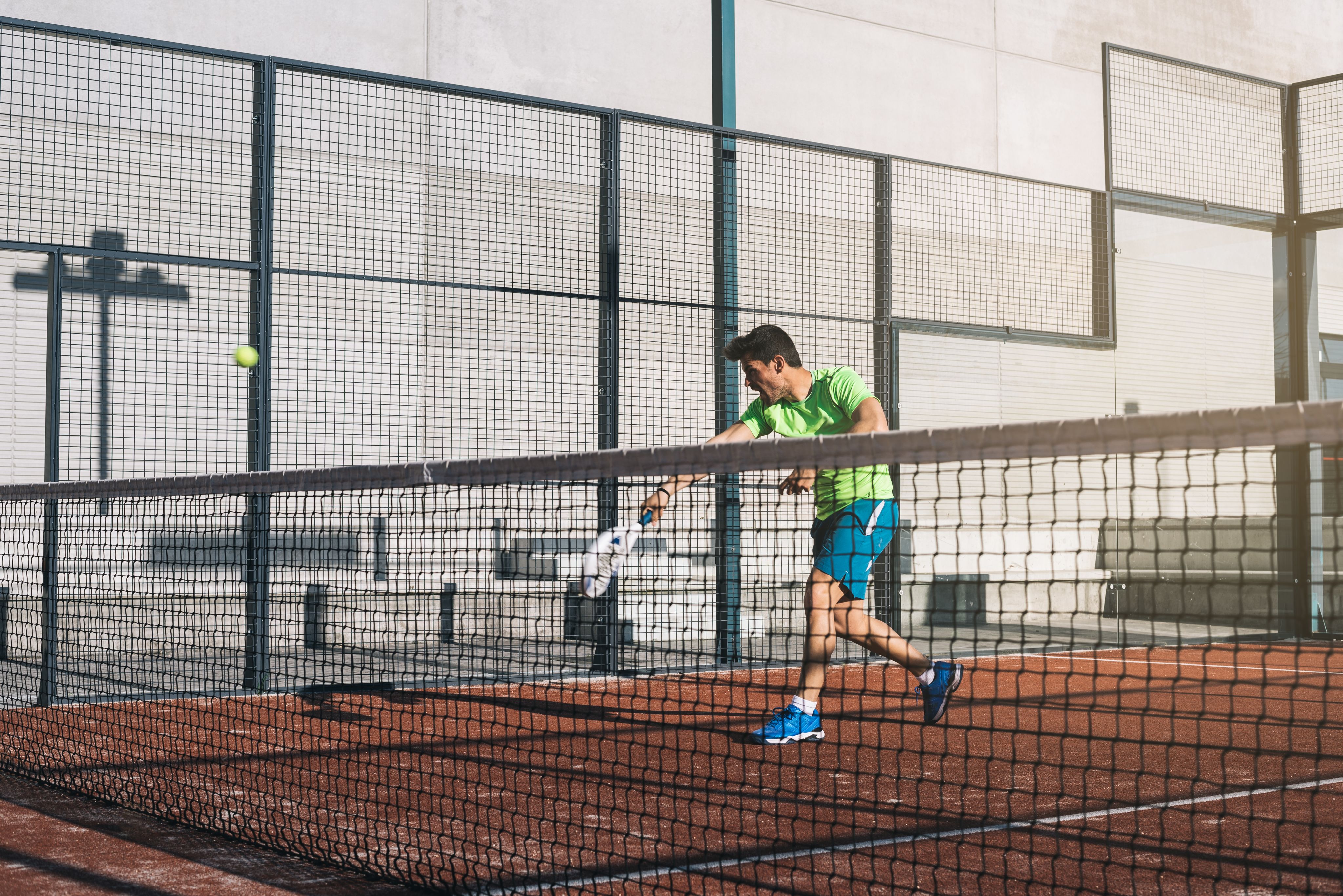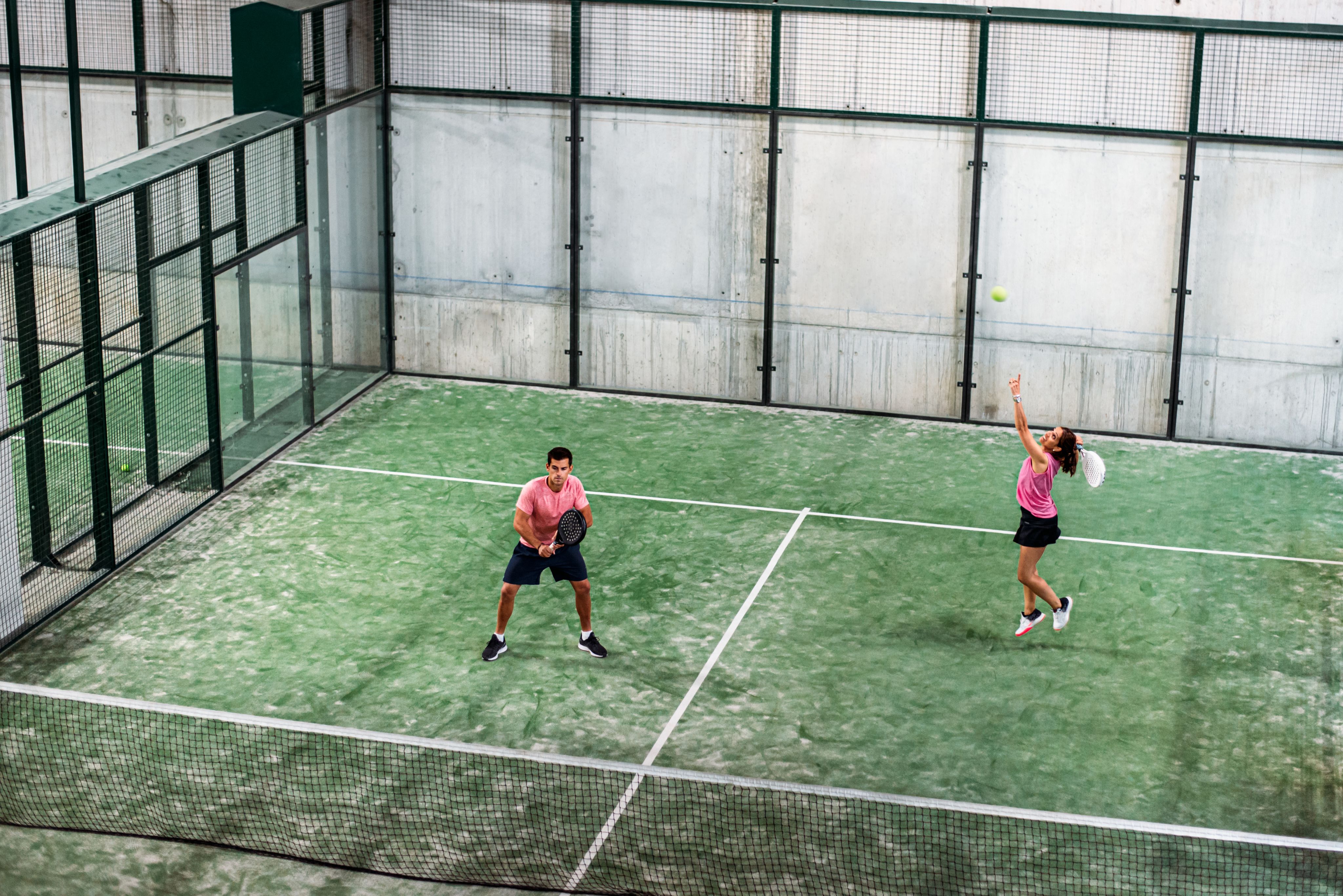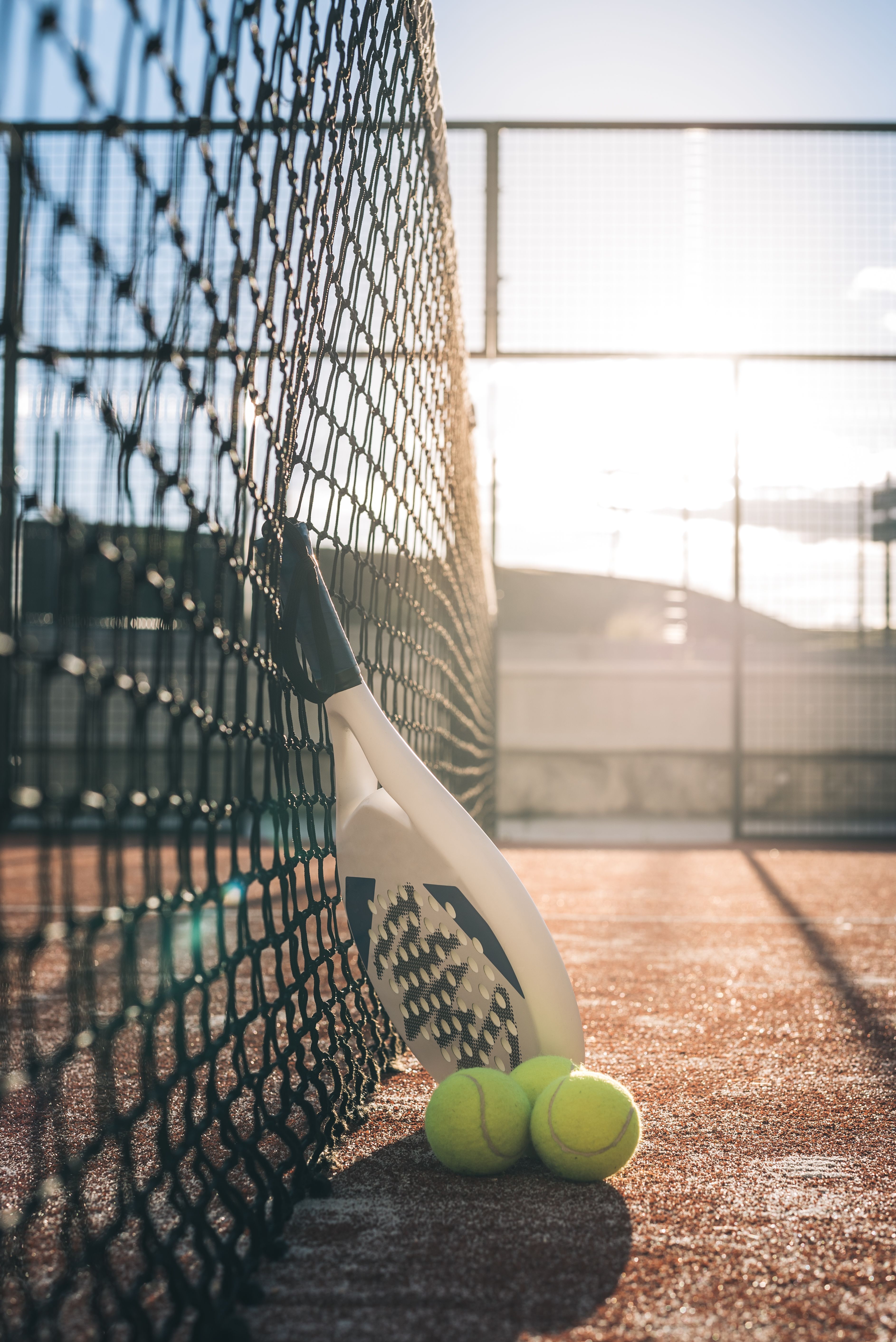Padel for ADHD
How Padel, the World’s Fastest-Growing Sport Supports Focus, Mood and Mental Clarity in ADHD
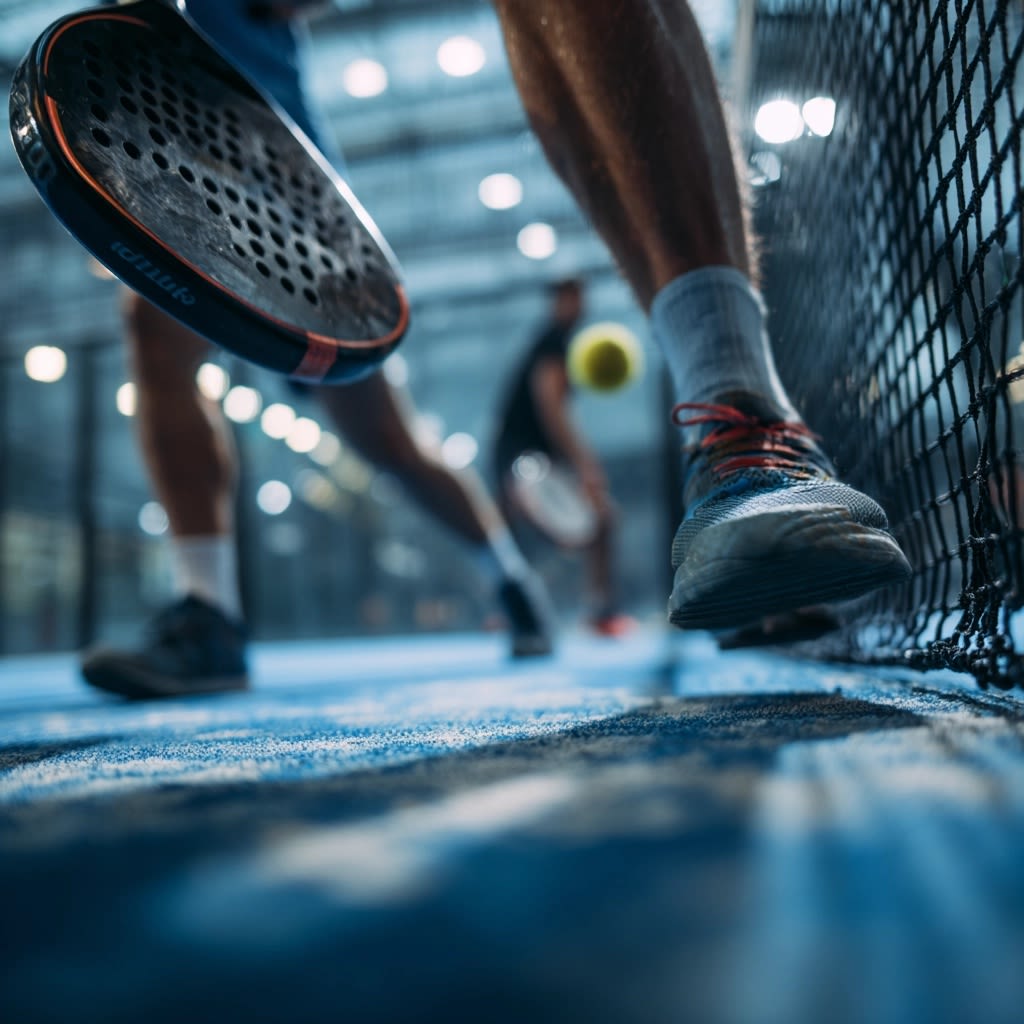
Padel: currently one of the world’s fastest-growing sports, isn’t just a fun, high-energy game; it’s also gaining attention as a potential brain booster. For people with ADHD or anyone looking to enhance their mental performance, staying active with a sport like padel can lead to better focus, improved memory, and steadier emotional control. The game’s fast-paced, strategic play demands quick decision-making and teamwork, giving your brain a healthy workout that sharpens concentration. And because padel is usually played in doubles, it doubles as a social outlet, an active way to bond with others that studies say can lift your mood and reduce feelings of anxiety or loneliness. In short, padel offers a unique blend of high-energy fun and mental benefits, making it a win-win for both body and mind.

What is Padel?
Padel is a rapidly growing racket sport that blends elements of tennis and squash. It is typically played in doubles on a smaller, enclosed court, where the ball can be played off the surrounding walls, adding a dynamic and strategic layer to the game. Unlike tennis, padel uses solid, stringless rackets and is easier to pick up for beginners due to its intuitive mechanics and slower ball speed. The rallies tend to be longer and more continuous, making it highly engaging from the start.
The game’s format fosters teamwork and social interaction, with players positioned closer together than in many sports, encouraging frequent communication and camaraderie. Its design makes it accessible across age groups and fitness levels, and its rapid growth worldwide is attributed to its fun, social atmosphere and full-body mental and physical benefits.
This article aims to raise awareness of the unique cognitive, emotional and social benefits of padel for individuals with ADHD and those seeking to improve brain performance. By exploring the natural alignment between the sport’s high-paced structure and the neurological profile of ADHD, it encourages readers to consider padel not just as exercise, but as a powerful tool for enhancing focus, executive functioning, emotional regulation and overall mental wellbeing. It also highlights how Sanctum will integrate padel into its innovative approach to ADHD support and brain health optimisation.
Physical activity doesn’t just benefit the body, it plays a powerful role in supporting cognitive health and mental clarity. A growing body of research shows that regular aerobic exercise can enhance memory, concentration and executive functioning (the mental skills we use to plan, focus attention, regulate emotions and manage time).
A major meta-analysis of over 2,700 clinical trials confirmed that exercise produces small-to-moderate but consistent improvements in overall brain function, with particularly strong effects on memory and decision-making in both young and older adults.
Racket sports such as tennis and squash are especially effective because they combine physical exertion with complex mental demands. These sports require fast reactions, precise coordination, split-second decision-making, and strategic thinking, all of which challenge the brain’s prefrontal cortex, the area responsible for attention and impulse control. Engaging in this kind of dynamic movement has been shown to enhance cognitive flexibility, inhibitory control, and even emotional regulation, which are vital for learning and day-to-day functioning.
For individuals with ADHD, racket sports offer particular value. Coaches have long observed that children and adults with attention difficulties tend to thrive in high-stimulation, structured environments like sport. The short, intense rallies and immediate feedback in these games help maintain engagement and train the brain to focus. One tennis coach noted that the short attention spans often seen in ADHD “fit” the quick rhythm of the game, making it a natural attention-building tool.
Padel, may offer even more cognitive benefits. Played in doubles on an enclosed court, padel keeps players in near-constant motion, reacting to unpredictable ball bounces off the walls. These frequent, low-stakes challenges demand sustained focus, quick thinking, and cooperative play — all of which engage multiple areas of the brain. Compared to other racket sports, padel’s longer rallies and tactical depth offer more opportunities to practise executive function in real time.
Padel is a fast-paced, doubles racket sport played on a small enclosed court, where players can use the walls during play. Its accessible design and continuous rallies make it easier for beginners while still offering a mentally stimulating challenge. The need to anticipate wall rebounds and make rapid decisions exercises visuo-spatial awareness and cognitive flexibility. The sport requires sustained attention and strategic thinking, engaging executive functions like impulse control and planning.
Physiologically, padel boosts alertness through dopamine and adrenaline release, often putting players “in the zone.” Its social format, usually played in pairs, enhances communication, reduces anxiety and promotes a fun, inclusive atmosphere. Altogether, padel offers a unique combination of physical activity, cognitive stimulation, and social connection, making it a valuable sport for mental wellbeing and brain health.
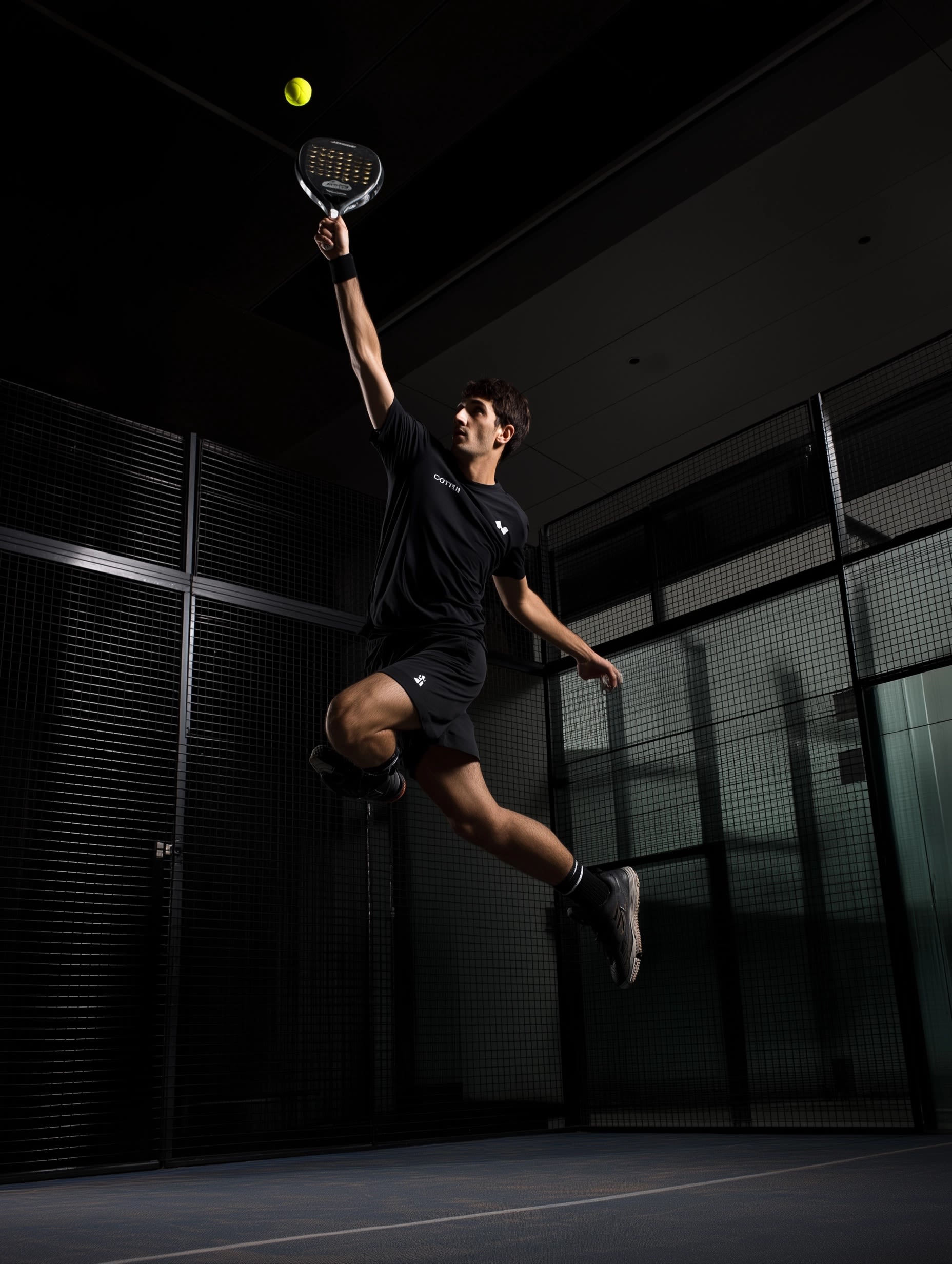
Can Padel Improve Memory and Brain Function?
While direct research on padel and cognitive performance is still emerging, early findings are promising. One notable study (Pradas et al., 2021) found that just 28 minutes of competitive padel led to a significant increase in BDNF (brain-derived neurotrophic factor) aa protein that supports learning, memory and brain plasticity. This suggests that, like other forms of aerobic exercise, padel may stimulate biological processes that protect and enhance brain health.
Further support comes from a 2024 study which showed that mental fatigue impaired the performance of elite padel players. Their shot accuracy and reaction times dropped significantly after completing a taxing cognitive task. This highlights how padel relies heavily on alertness, decision-making, and rapid reactions, and that regularly playing the sport could help strengthen these abilities over time.
Though formal clinical trials are still needed, experts and coaches consistently describe padel as mentally engaging and beneficial. Many players report feeling more mentally “switched on” after playing, likely due to the strategic thinking, problem-solving and focus the sport demands. Learning padel also stimulates neuroplasticity, as acquiring new skills is known to build brain connectivity and cognitive reserve, especially in midlife and older adults.
Taken together, the evidence suggests that padel offers far more than physical exercise, it delivers a dual benefit to both body and mind, and may be a valuable way to support memory, attention, and cognitive sharpness as we age. Future research will be essential, but the early signals are clear: padel is good for the brain.

Why Padel May Be a Perfect Fit for people with ADHD
For adults living with ADHD, symptoms like inattention, impulsivity, and difficulty with organisation can affect everything from work performance to relationships. While medication remains an important tool for many, there’s growing evidence that physical activity, especially aerobic exercise, can play a powerful role in managing ADHD symptoms.
A major 2023 review of exercise in young people with ADHD found that regular physical activity led to significant improvements in inattention and executive functioning, such as planning and mental flexibility. People with ADHD, in particular, may benefit more than others, as they often start with lower baseline levels of self-regulation and focus. Exercise also boosts key brain chemicals like dopamine and norepinephrine, which help improve attention and mood, which are typically underactive in ADHD.
While no clinical trials have yet examined padel specifically as an ADHD intervention, the sport’s features align well with what makes an activity "ADHD-friendly":
- Fast-paced and highly engaging
- Clear structure with variety
- Frequent positive reinforcement
- Continuous physical movement that channels excess energy
Each rally in padel is short and stimulating, keeping players on their toes, reacting to shots, anticipating bounces off the walls, and planning their next move. This format provides near-constant cognitive and physical engagement, leaving little time for distraction. One sports psychologist noted that padel encourages players to focus, plan, and manage emotions in real time, describing it as excellent mental training for those with ADHD.
The biological effects also make padel particularly promising. A single session of high-intensity sport has been shown to improve attention and mood almost immediately in adults with ADHD. Padel matches, typically 60–90 minutes of stop-start aerobic activity, may act like a natural stimulant, with players reporting clearer thinking and a calmer mood after games.
What sets padel apart, though, is its social and motivational appeal. Many adults with ADHD struggle to maintain consistent exercise habits due to boredom or lack of accountability. Padel solves both problems: it’s fun, interactive, and usually played with others. Having a partner or team creates built-in encouragement and structure, and the friendly, community-driven atmosphere helps reduce the isolation or frustration that can often accompany ADHD.
In summary, while more formal research is needed, padel appears to offer an ideal mix of movement, mental challenge, and meaningful connection, all critical ingredients for thriving with ADHD. For adults seeking to manage symptoms and improve overall wellbeing, padel may offer far more than just a good workout, it may be a pathway to better focus, mood, and self-regulation.etter focus, mood, and self-regulation.
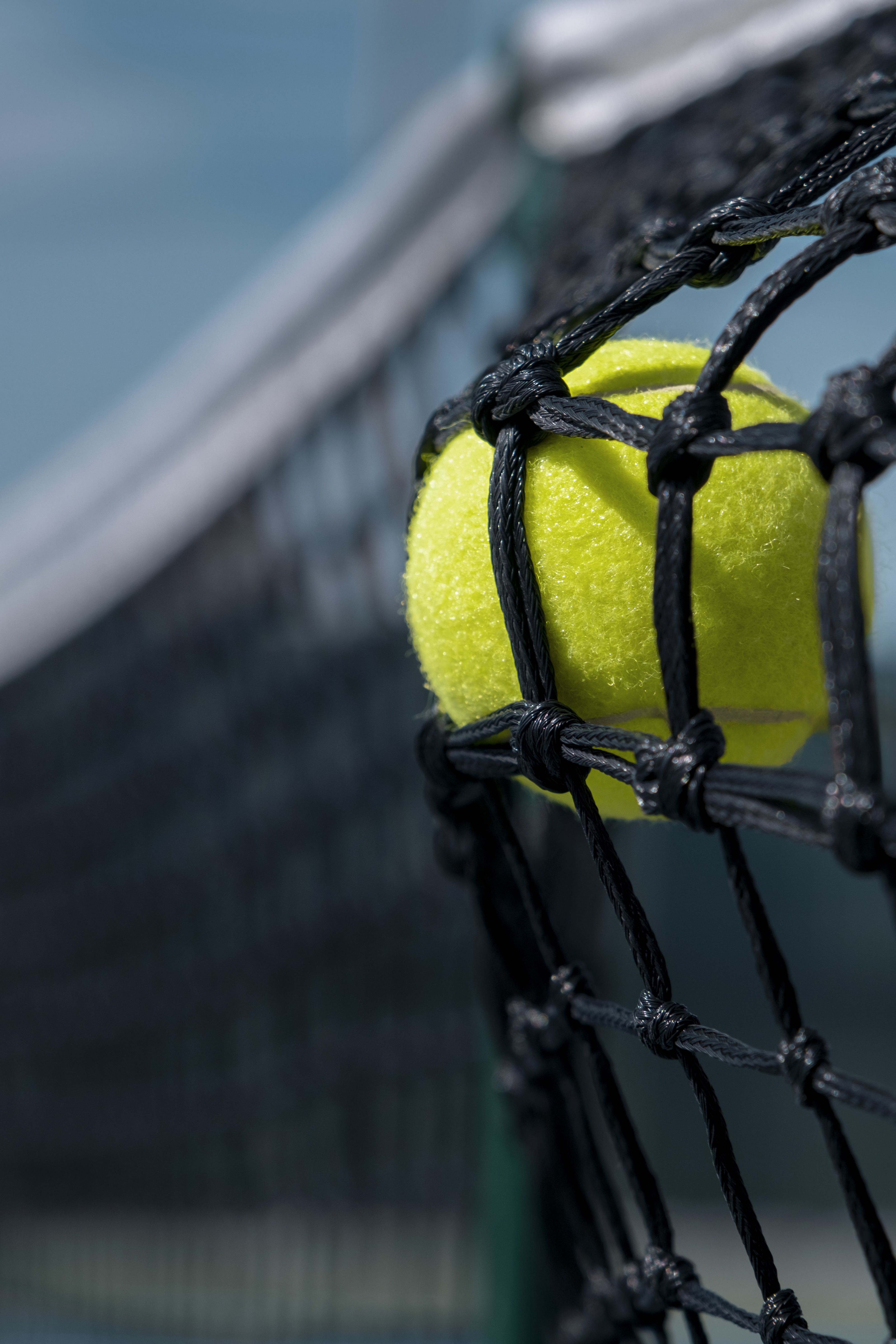
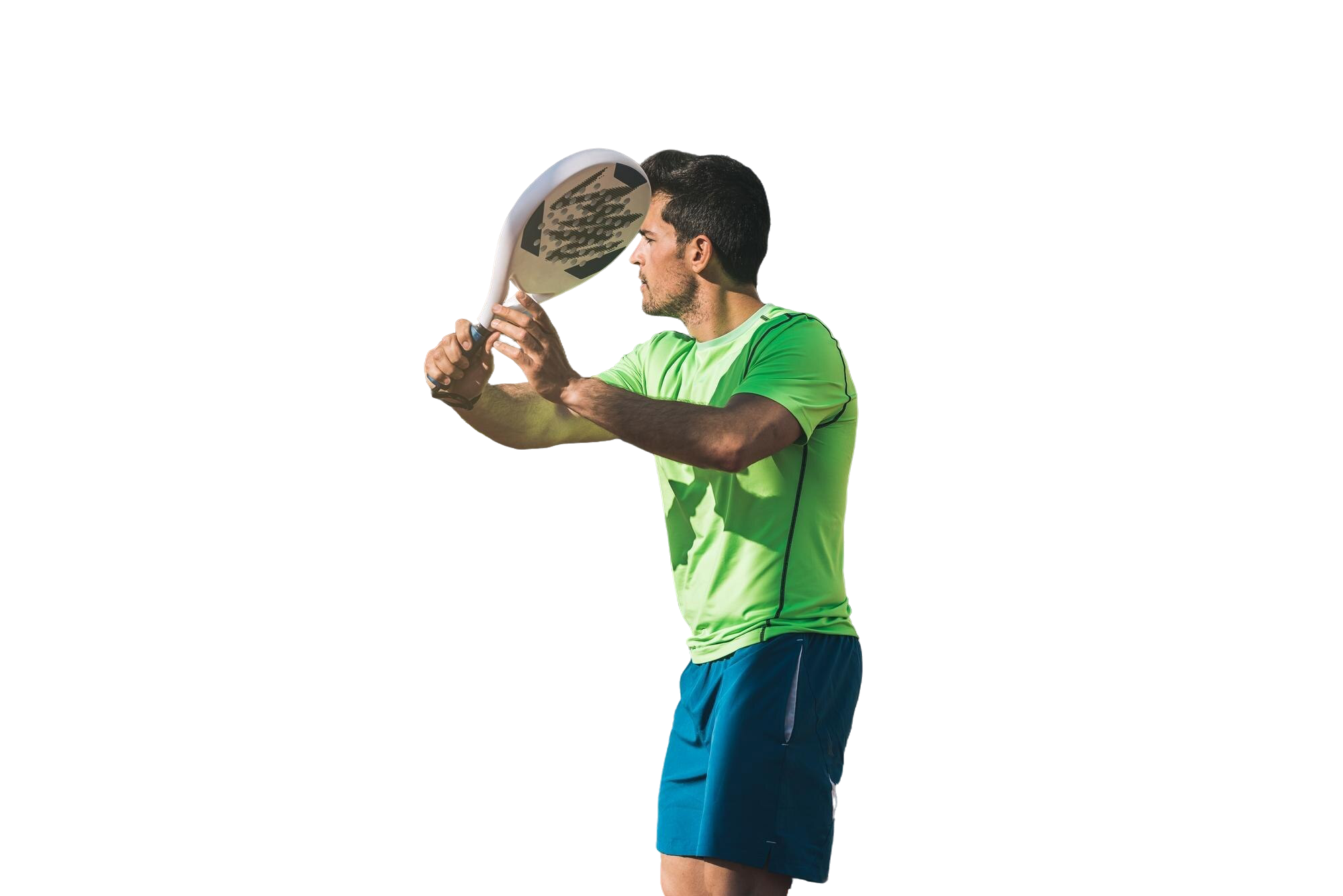
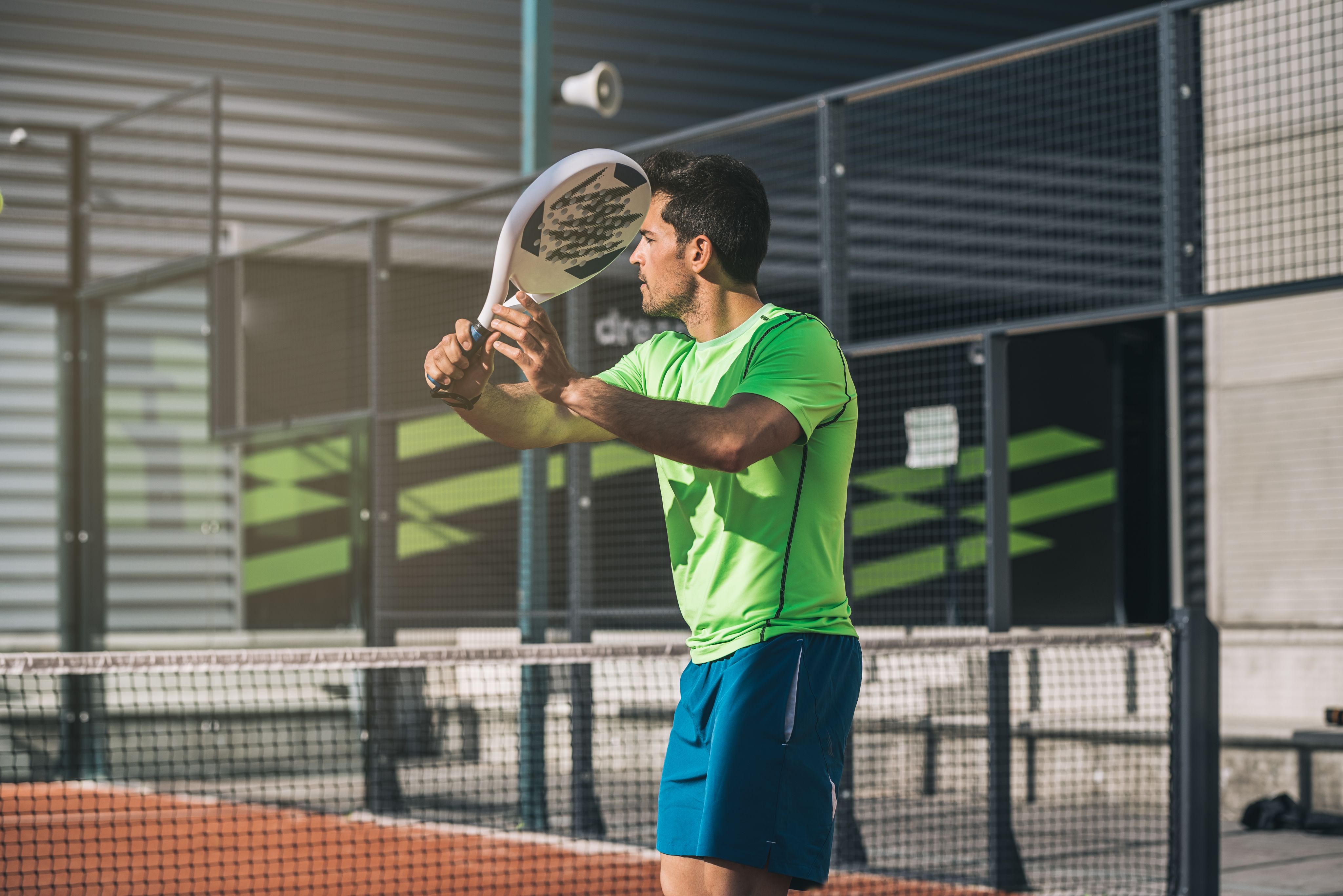
Why Padel Is Good for Your Brain: The Science Behind It
What makes padel such a powerful tool for cognitive and emotional wellbeing? Beyond the fun of smashing the ball and sharing laughs with teammates, there’s real science behind how this sport benefits the brain. Here are the key reasons why padel can help boost focus, mood, memory, and mental resilience:
1. It’s Aerobic Exercise That Fuels the Brain
Padel keeps your heart rate elevated — and that’s great for brain health. Like other cardio activities, it improves blood flow to the brain and triggers the release of BDNF (brain-derived neurotrophic factor), a protein that supports learning, memory, and neuroplasticity. Even one session can help sharpen thinking speed and recall, while regular play may enhance long-term brain resilience and reduce cognitive decline.
2. It Trains Focus and Strategic Thinking
Each point in padel demands quick reflexes, coordination, and split-second decision-making. Players must track the ball, judge unpredictable bounces off the walls, and decide on the right shot , all in real time. This stimulates the brain’s executive functions, including attention control, planning, and impulse regulation. Because you can’t “zone out” on a padel court, your brain stays actively engaged throughout the game.
3. It Boosts Mood and Motivation
Padel naturally increases the release of feel-good brain chemicals like dopamine, norepinephrine, and endorphins. These help improve focus, reduce anxiety, and elevate mood, benefits that are especially valuable for people managing ADHD or low motivation. The fast, dynamic play also triggers adrenaline, which sharpens alertness and reaction time. Over time, this can help recalibrate stress responses and support emotional balance.
4. It Stimulates Learning and Neuroplasticity
Learning a new sport challenges your brain to adapt, solve problems, and remember patterns, all of which build new neural connections. Padel offers endless opportunities to develop skills, refine strategy, and reflect on performance. This kind of active learning strengthens cognitive reserve and can improve performance in other areas of life, including work and daily decision-making.
5. It Builds Connection and Community
Padel is almost always played in pairs, which means communication, cooperation, and social interaction are built into the game. Research shows that strong social connections reduce the risk of dementia and improve emotional wellbeing. Playing with others creates a sense of belonging, accountability, and support, all of which protect mental health and reinforce healthy habits. For people with ADHD or mood difficulties, this positive social environment can be just as important as the exercise itself.
In short, padel works on multiple levels: body, brain, and emotions. It provides the movement your body needs, the stimulation your brain craves, and the connection your mind thrives on. Whether you're managing ADHD, improving focus, or simply staying sharp as you age, padel offers a fun and sustainable way to build a healthier brain.
Padel challenges your body and sharpens your mind.
It turns focus into flow and energy into clarity.
Every rally builds resilience, strategy and self-belief.
This isn’t just a sport it’s brain training in motion.
Why the ADHD Brain Thrives on Padel
For many people with ADHD, everyday tasks can feel slow, repetitive, or overwhelming. But give them something fast-paced, challenging, and rewarding and their focus can become razor sharp. That’s exactly what happens on a padel court.
Padel offers the perfect environment for the ADHD brain: it’s novel, stimulating, and structured, with short bursts of action, clear rules, and constant movement. Each point unfolds quickly, requiring players to react, plan, and stay engaged. There’s no time for boredom or distraction , just pure, focused play. Sports psychologists have noted that people with ADHD often thrive in this type of high-stimulation setting, where the brain is fuelled by instant feedback and purpose.
Biologically, this makes sense. Every padel rally delivers a dose of dopamine and adrenaline, the very chemicals that help improve attention, motivation, and emotional regulation, and which are often in short supply in ADHD. These neurochemical boosts can leave players feeling calmer, clearer, and even “in the zone”: a state of hyper-focus that people with ADHD often struggle to access in everyday life.
Padel also speaks to the creative and strategic strengths often found in ADHD minds. The use of walls allows for inventive shots, clever angles, and unorthodox plays. Instead of punishing impulsivity, padel rewards quick, adaptive thinking. Scientific reviews have even linked ADHD with enhanced creativity and divergent thinking — and this is exactly the kind of environment where those traits shine.
Perhaps most importantly, padel subtly trains impulse control. New players quickly learn that smashing the ball without thought often backfires. Winning requires patience, timing, and working with your partner, all of which strengthen the very executive functions that ADHD can impair. In this way, padel provides a fun and practical way to rehearse self-regulation, cooperation, and emotional management in a real-world setting.
In summary, padel transforms ADHD challenges into strengths. It channels hyperactivity into motion, distractibility into focus, and impulsivity into strategy. Whether diagnosed or not, individuals with ADHD traits often find padel to be more than just a sport, it’s a space where their brains feel at home.
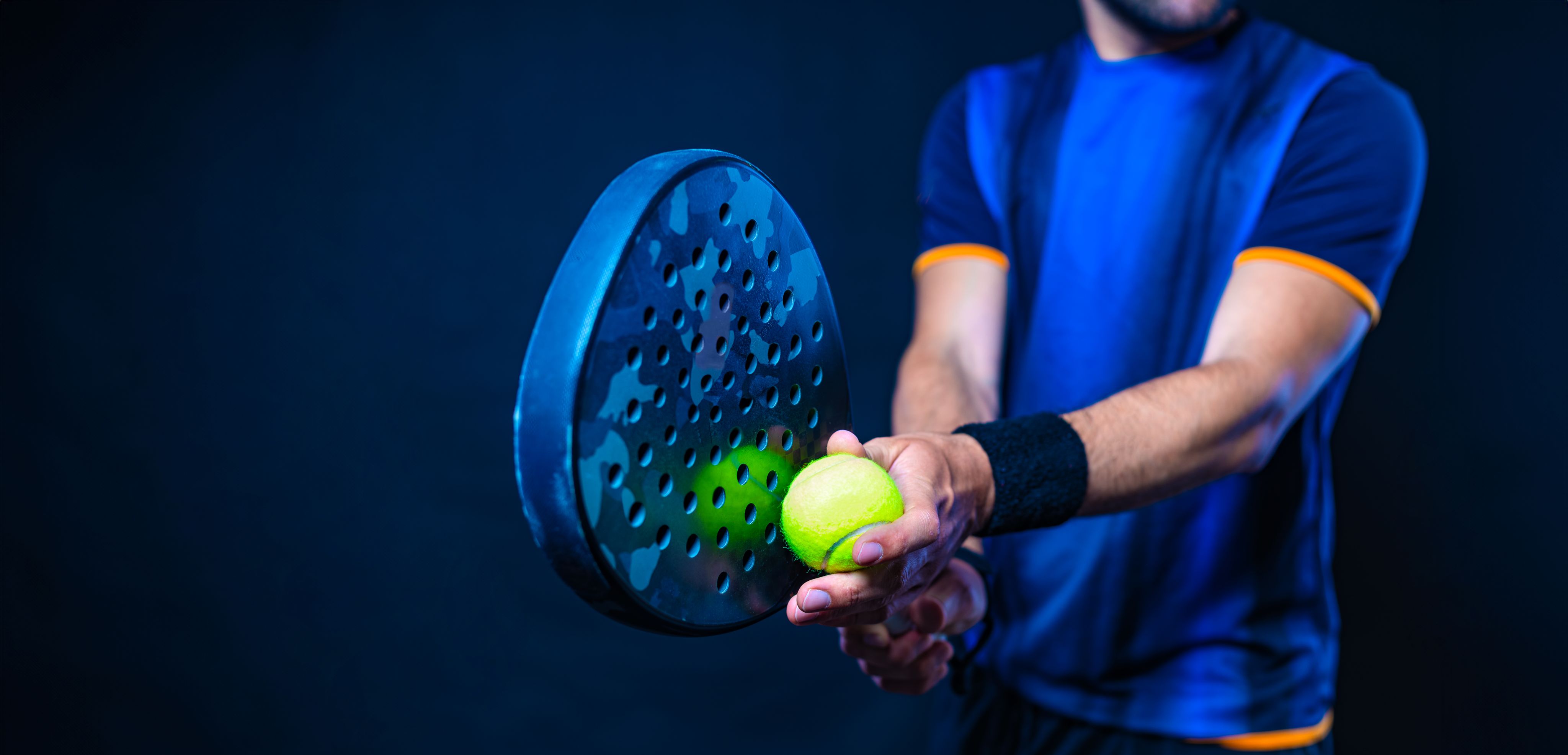
Think this sounds familiar?
If padel brings out the best in your focus, creativity, or energy — but you find everyday life harder to navigate — it might be more than just a preference for high-paced environments.
Many adults with ADHD go undiagnosed, yet instinctively seek out activities like padel that help them feel grounded, engaged, and mentally clear. At Sanctum Healthcare, we offer comprehensive ADHD assessments designed to uncover how your brain works, what helps you thrive, and where targeted support could make a difference.
Book your ADHD assessment today
and take the first step in understanding your potential, on and off the court.
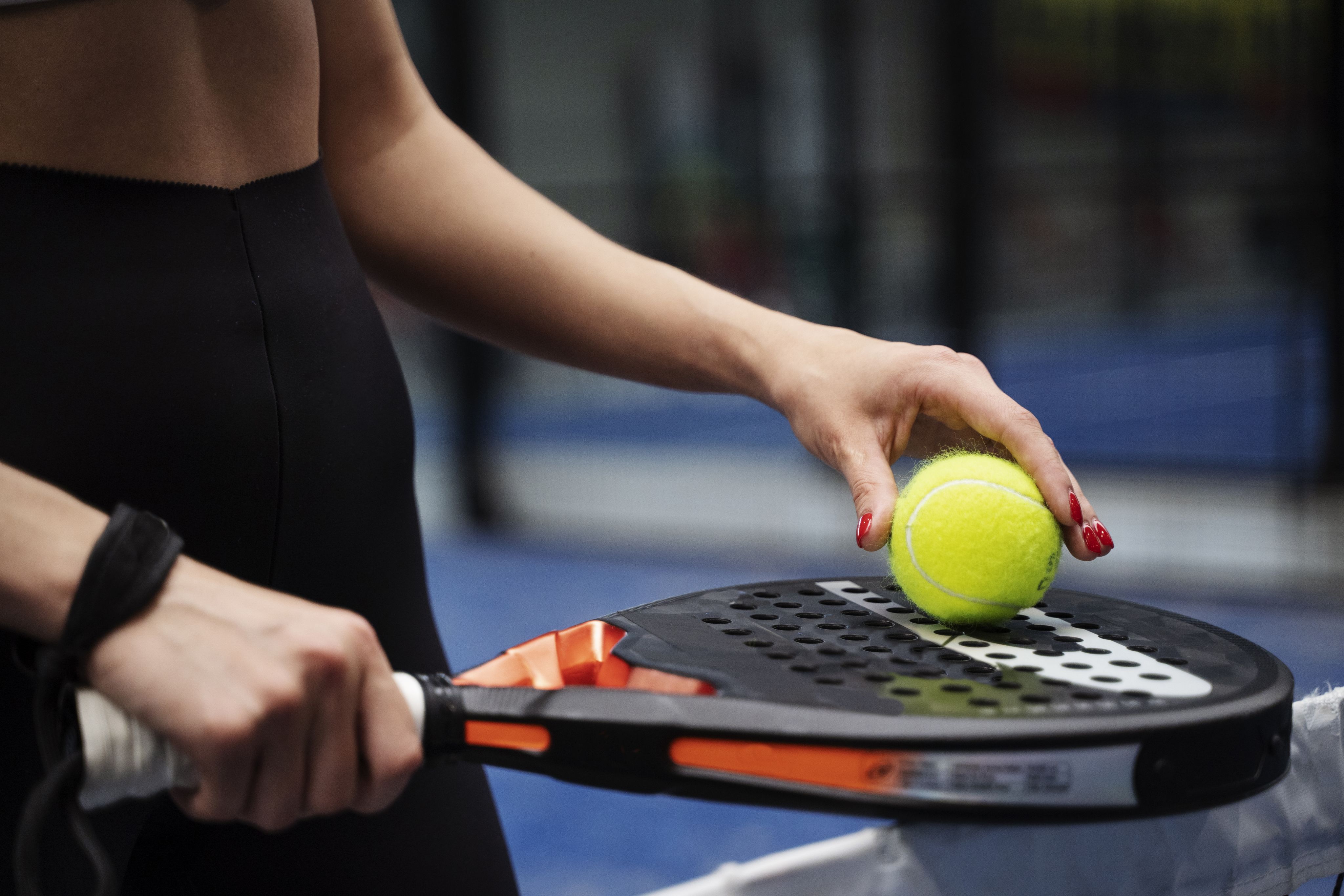
Padel: a new ally in brain health and ADHD support
Padel is more than a sport, it's a compelling blend of movement, mental agility, and meaningful connection. While research into its direct effects on memory and cognition is still growing, the existing evidence from exercise science, related racket sports, and early padel studies paints a promising picture. Regularly playing padel appears to enhance focus, decision-making, emotional regulation, and memory, all while offering a joyful, community-driven experience.
For adults with ADHD, padel may offer a unique way to channel attention and energy constructively, reinforcing other therapeutic strategies. And for anyone looking to sharpen their mind, protect long-term brain health, or simply enjoy a more engaging form of exercise, padel ticks every box.
Future studies are needed to explore the full neurological impact, including cognitive testing and brain imaging, but the case for padel as a brain-healthy activity is already strong. With its accessibility, popularity, and cognitive depth, padel represents a golden opportunity for individuals, clinicians, and public health leaders alike.
In essence, padel isn’t just about how you move — it’s about how you think, feel, and connect. It’s brain health, in motion.
References:
Academic and Scientific Sources
Díaz-García, J., Martínez-Gallego, R., González-Jurado, J.Á. and Courel-Ibáñez, J., 2024. Mental fatigue impairs padel-specific psychomotor performance in youth players. European Journal of Sport Science. Available at: https://www.ncbi.nlm.nih.gov/
Hiatt, R., Borer, K.T. and Borer, M., 2022. Acute effects of high-intensity interval training on cognitive function in college students with ADHD. Mental Health and Physical Activity, [online] Available at: https://www.ncbi.nlm.nih.gov/
Li, J., et al., 2023. Physical exercise interventions on cognitive function and ADHD symptoms in youth: an umbrella review. EClinicalMedicine, [online] Available at: https://pubmed.ncbi.nlm.nih.gov/
Pradas, F., et al., 2021. Effects of padel competition on brain health-related myokines. International Journal of Environmental Research and Public Health, 18(11), p.6042. Available at: https://www.researchgate.net/
Sánchez-Alcaraz, B.J. and Courel-Ibáñez, J., 2022. The role of padel in improving physical fitness and health promotion: Progress, limitations, and future perspectives. International Journal of Environmental Research and Public Health, [online] Available at: https://www.mdpi.com/
Storey, D., 2025. Exercise is even better than we thought for brain health. Psychiatrist.com, [online] Available at: https://www.psychiatrist.com/
Expert Opinion and Informal Sources
Padel39 Club, 2023. How can padel help improve your mental health? Padel39 Blog. Available at: https://www.padel39.com
Padel Athletes, 2023. Padel for seniors – staying active and healthy. Available at: https://www.padelathletes.com
The Psychology Insider (van Kuyk, J.R.), 2021. The neuropsychology of padel. The Psychology Insider. Available at: https://www.the-psychology-insider.com
USPTA (Li, J.), 2010. Tennis: The right sport for ADHD kids. ADDvantage Magazine, United States Professional Tennis Association. Available at: https://www.uspta.com
Media, Market Trends, and Participation Reports
City AM, 2023. Why padel is surging in popularity – and finally bringing women with it. City AM. Available at: https://www.cityam.com
Lucas Fox International, 2024. The global rise of padel. Market Trends. Available at: https://www.lucasfox.com
Lawn Tennis Association (LTA), 2025. Padel participation report. The Padel Paper. Available at: https://www.thepadelpaper.com




